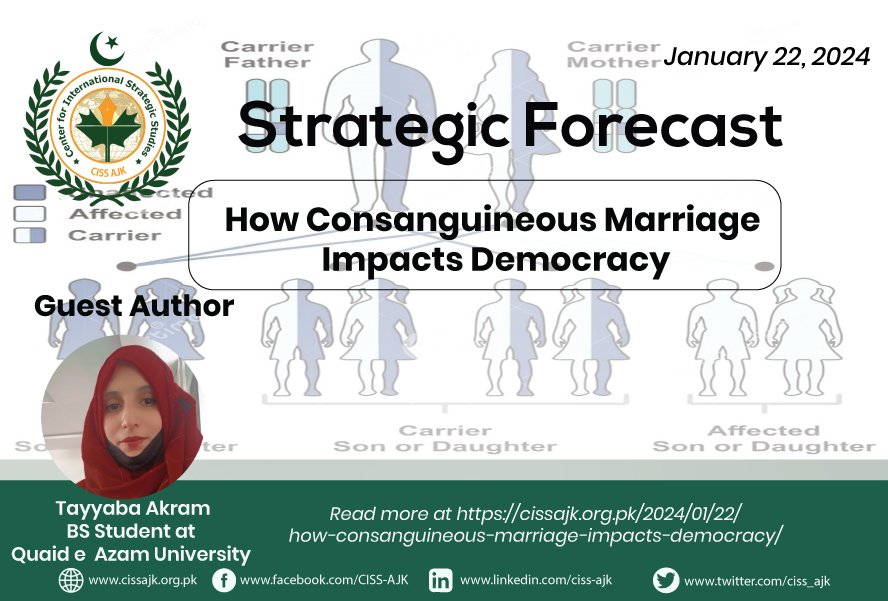Consanguineous Marriage, also known as Cousin Marriage is a common practice in Pakistan, with rates reported to be as high as 55 to 60%. This practice is predominantly due to economic, religious, and cultural reasons. The prevalence of Cousin Marriage in Pakistan is a complex issue influenced by various societal, cultural, and religious factors. Research suggests that Cousin Marriage may lead to both costs & and benefits, and its effects can vary depending on the specific socio-ecological context.
Consanguineous Marriage is a union between two individuals that are closely related, such as first, and second cousins or closers. In Pakistan, cousin marriage is a common practice. The practice of consanguineous marriage is deeply rooted in the social, cultural, and religious traditions of Pakistan, and it is more common in rural areas and among individuals with a low socioeconomic status. Cousin marriage is preferred in some cultures due to sociocultural factors such as the maintenance of family structure and property, ease of marital arrangements, better relationships with in-laws, and financial advantages relating to dowry. Consanguineous marriages are not only common within Pakistan but also practiced among British Pakistani communities. In a study conducted in Bradford, which has a large Pakistani community, the proportion of first-cousin marriages dropped from 55% to 45% between the original study and the follow-up study.
Many in the community are unaware of the tragic consequences of cousin marriages. Consanguineous Marriages are associated with an increased risk of genetic disorders and congenital anomalies in offspring. Consanguineous or cousin marriage can also lead to a higher risk of intellectual disabilities. In a study conducted in Israel, children of first-cousin marriages had a higher prevalence of intellectual disabilities and other genetic disorders. Dr.Alan Bittles, a geneticist, has conducted extensive research on the genetic implications of cousin marriage. He emphasizes the importance of understanding the potential risks associated with consanguineous unions, such as an increased likelihood of certain genetic disorders. Dr. Hamish Spencer, the biologist, has examined the impact of cousin marriage on genetic diversity and evolutionary patterns. His work suggests that while cousin marriage can reduce genetic diversity in isolated populations, its effects may be more nuanced in larger, more diverse populations. In the list of countries with the highest Infant Mortality Rate Pakistan, lies in the top 15 countries according to a 2020 survey.
As consanguineous Marriage affects other factors, it is also a potential threat to democracy. Consanguineous marriage can affect democracy by influencing the strength of extended kin groups, which, in turn, can affect institutional quality, nepotism, and the functioning of formal institutions. Research has shown that countries with high cousin marriage rates exhibit a weak institutional quality and democracy, potentially due to the in-group mentality, preventing large-scale cooperation beyond the extended family and undermining the essence of democracy. In 2012, Woodley and Bell conducted an interesting study titled “Consanguinity as a Major Predictor of Levels of Democracy: A Study of 70 Nations.” In their research, they explored the relationship between consanguineous marriage and levels of democracy across different countries. The study found that higher rates of consanguineous marriage were associated with lower levels of democracy. They proposed that the genetic and social consequences of consanguinity might contribute to this relationship. It is an intriguing piece of research that adds to the understanding of how cultural practices can affect the political system.
Additionally, Consanguineous Marriage is also one of those factors that result in the inhalation of Individualism and then it leads to a Patriarchal system. Cousin marriages create extended families that are much more closely related which can lead to Nepotism and work against meritocracy, affecting the democratic process. Consanguineous marriages can contribute to a range of factors that affect the functioning of democratic institutions. Democracy cannot come into existence in those societies where consanguineous marriages are repeated repeatedly. Because in these societies family system is too strong and there is no concept of individualism. The reason behind the weak democracy in Pakistan is that people are not even aware of their rights. They think that if they have no individual freedom in their families so there is no need to demand rights from the state.
So, first, consanguineous marriage should be banned by the state, because as we discussed earlier it affects the intellectual ability of new offspring. It causes genetic disorders. It also results in weakening the democracy. In Pakistan’s case, it is very high which is why few big families rule the entire state. They are very influential in the state affairs.
Bio
The writer is a student of Political Science at the School Of Politics and International Relations, Quaid e Azam University Islamabad
She can be reached at tayyabaakram89@gmail.com.

